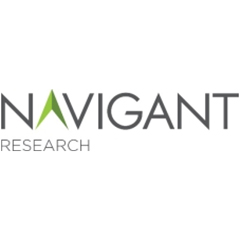New policies, technologies, and changing customer behavior are expected to drive value to homeowners and the energy ecosystem
Jan. 7, 2020 – Boulder, Colo. – A new report from
Navigant Research examines how regulators, homebuilders, energy suppliers, and OEMs can together address residential energy needs with new technologies and business models. The report provides strategies to ensure new builds meet the highest environmental criteria while bringing value to both the homeowner and the energy ecosystem.
Traditionally, home builders have seen energy technologies as a sunk cost needed to comply with customer needs or, in the best case, as luxury items to add to the perceived value of a property.
Click to tweet: According to a new report from
@NavigantRSRCH, a combination of policies reducing the environmental footprint of housing, promoting technology development, and changing customer behavior in favor of sustainable products is driving the integration of new energy technologies in new build residential developments.
“New builds offer the best potential to create sustainable housing, as the cost of integrating energy technologies at the planning stage of a property development scheme is significantly cheaper than doing so as a retrofit,” says Roberto Rodriguez Labastida, senior research analyst with Navigant Research. “Also, new residential developments can be further optimized, taking advantage of the different behavior patterns of its inhabitants and the needs of the local grid. This optimization can bring value to the new homeowners, homebuilders, and the grid while proving growth for vendors and systems integrators.”
For stakeholders looking to succeed in this space, Navigant Research recommends that regulators allow for experimentation through rule exemptions for specific projects, while systems integrators work to educate the market about energy integration opportunities. Vendors should build compatible technology solutions specifically for this market, and financial providers should consider energy bill cost and savings in their affordability calculations. Meanwhile, homebuilders and landlords should explore energy revenue streams from their developments.
The report,
New Home Construction Energy Integration, discusses how these trends affect new home construction and how regulators, homebuilders, energy suppliers, and OEMs can together address residential energy needs with solutions that go beyond a single home installation. Stakeholders can adopt new technologies and business models to ensure new builds meet the highest environmental criteria while bringing value to both the homeowner and the energy ecosystem. The study focuses on the following emerging strategies: self-consumption, landlord to tenant energy services, and energy communities. It also looks at case studies that highlight successful approaches and barriers encountered by energy players employing these strategies. An executive summary of the report is available for free download on the
Navigant Research website.
About Navigant Research
Navigant Research, the dedicated research arm of Navigant – a Guidehouse company, provides market research and benchmarking services for rapidly changing and often highly regulated industries. In the energy sector, Navigant Research focuses on in-depth analysis and reporting about global clean technology markets. The team’s research methodology combines supply-side industry analysis, end-user primary research and demand assessment, and deep examination of technology trends to provide a comprehensive view of clean, intelligent, mobile, and distributed energy. Additional information about Navigant Research can be found at
www.navigantresearch.com.
About Guidehouse
Guidehouse is a leading global provider of consulting services to the public and commercial markets with broad capabilities in management, technology, and risk consulting. We help clients address their toughest challenges with a focus on markets and clients facing transformational change, technology-driven innovation and significant regulatory pressure. Across a range of advisory, consulting, outsourcing, and technology/analytics services, we help clients create scalable, innovative solutions that prepare them for future growth and success. Headquartered in Washington DC, the company has more than 7,000 professionals in more than 50 locations. Guidehouse is led by seasoned professionals with proven and diverse expertise in traditional and emerging technologies, markets and agenda-setting issues driving national and global economies. For more information, please visit:
www.guidehouse.com.


























